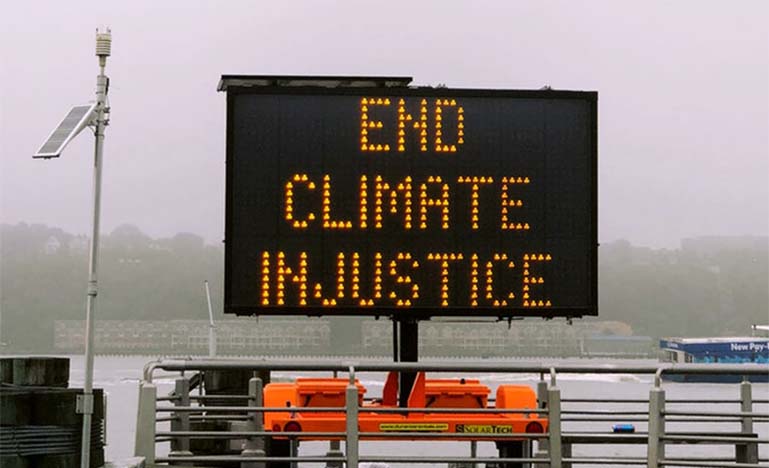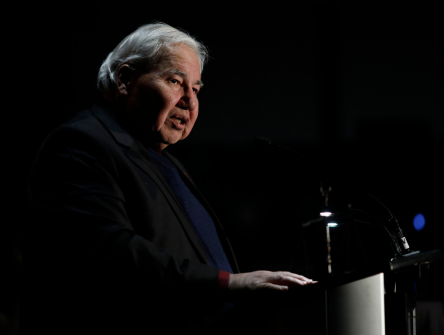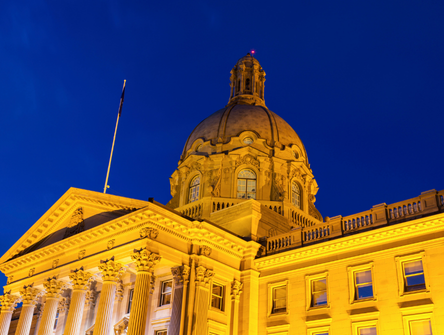The kids aren’t alright
Could a class action suit force the federal government to deliver on its climate change rhetoric?

Millennials are blamed for all sorts of contemporary social ills, but there is at least one societal issue for which they can pin the blame on their elders: climate change. A group of youth based in Quebec are applying to bring a class action suit against the federal government at the Superior Court of Québec. The youth are claiming that the failures of successive federal governments to appropriately tackle climate change is resulting in charter rights violations.
Should the effort succeed, it would mark a significant shift in climate litigation in Canada.
The Quebec lawsuit follows the precedent of other citizen-led lawsuits and, in particular, a youth-led lawsuit that has been launched in the United States. In that one, American children are arguing that the under-regulation of greenhouse gases and subsidies made to the oil and gas industry are exacerbating climate change and thereby violating the youth’s constitutional rights, as delineated by the public trust doctrine.
Similarly, in Canada, Enjeu Québec outlines how both previous and present governments have failed to effectively legislate climate change, which they say, will result in charter violations. They criticize earlier governments for not setting ambitious enough targets and the present one for not implementing effective policies to meet current reduction targets.
The filing even goes so far as to suggest that the current government is hypocritical by claiming Canada is a climate change champion at international forums while domestically dodging the issue. Failing to adequately stem the rise of greenhouse gases will, the youth argue, affect their Charter rights, particularly the principle of fundamental justice as found under Section 7. “To limit in the very short term any economic loss is totally disproportionate in comparison to the gravity of the physical, moral and material harm that affects and will affect all members of the class in the short, medium and long term,” they write. They are also basing arguments on the right to a healthful environment as found under s.46.1 of the Quebec Charter of Human Rights and Freedoms.
What are their odds of success? Avnish Nanda, the founder of Nanda Law, an Alberta based-law firm specializing in constitutional cases, says that there is ample room within the Charter to hold the government accountable for environmental protections. Notably, he writes about its use in invoking the precautionary principle to protect against potential harms caused by environmental destruction. He writes:
Section 7 confers protections from potential harms that have not occurred and may never materialize, and is therefore, wholly consistent with the precautionary principle. It places the onus on the state to justify activity that not only causes harm, but increases the risk of it as well. In the environmental context, s. 7 imposes a constitutional duty on the state to ensure that the environmental impacts of industrial activity it authorizes or contemplates does not violate the life, liberty or security of the person interests of any person in a manner that does not accord with the principles of fundamental justice. The provision also provides individuals a method to ensure that governments carry out this duty. And while s. 7 narrows the precautionary principle through the lens of individual rights protections, it still provides the ability to constrain the state's ability to engage in environmentally destructive activity.
However, Hugo Tremblay, an adjunct professor specializing in environmental law at the University of Montreal believes that the EnJeu Quebec lawsuit will face an uphill battle, as the Canadian Charter is usually construed as conferring negative, and not positive rights. To his knowledge, no court in Canada has recognized a positive obligation under the Charter in the context of climate litigation, although some Supreme Court decisions concerning the right to equality and fundamental freedoms may open the door to EnJeu's arguments. He adds that even if a positive obligation was recognized, the implications are unclear for both the court and the government. How would a court decide whether a particular policy is good enough to fulfill the positive obligation? What will it force the government to do? A victory for EnJeu Quebec, he says, would break new ground in the Canadian legal landscape.


